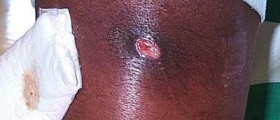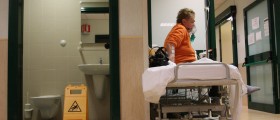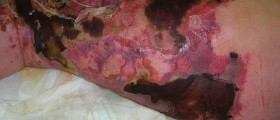
MRSA infections are caused by staph bacteria that have become resistant to the antibiotics used to counter them. Generally, these infections occur in hospitals or other health centres - this is known as health care-associated MRSA. In many cases, the infections occur in this setting as a result of invasive procedures or devices. In the wider community, MRSA also occurs regularly. This type of the infection often begins as a painful skin boil that can be spread by skin-to-skin contact. High school wrestlers, care workers and those who live in crowded conditions are often more vulnerable to the infection than most.
Appointment preparation
Your family physician might refer you to a specialist. This will depend on which of your organ systems has been negatively affected. Before consultation, it might be useful for you to make a list that contains a detailed description of your symptoms and other information, such as your past medical history and family medical history. It might also be useful to inform the doctor about any medications or dietary supplements you are taking. The doctor will perform a physical exam with the objective of examining any skin lesions that you might have. A tissue sample or liquid sample from the lesion might be taken.
Prevention of the infection
With regard to the prevention of CA-MRSA, the strain that occurs outside a health-care setting, one should always wash one's hands very carefully. This is often the best defense against germs. Make sure to scrub your hands for a minimum of fifteen seconds. Dry them with a towel and use another towel to switch off the tap. Hand sanitizer with about sixty percent alcohol is a good way to clean your hands when you don’t have time to wash them with water. Cover your wounds. Cuts and abrasions should be clean and covered with bandages. This will slow the spread of bacteria. Don’t share items such as sheets, towels, razors or athletic equipment. MRSA can be spread through contamination of items such as these. Make sure to shower after sport or other similar activities. Again, don’t share towels if possible. If necessary, sanitize your linens.
Slowing down the infection
Those who contract the infection whilst in health care are often isolated or quarantined. This will help to halt or slow the spread of the infection. Strict hygiene procedures should be followed, such as the use of protective garments or clothing. Contaminated surfaces and other items should be properly disinfected.

















Your thoughts on this
Loading...